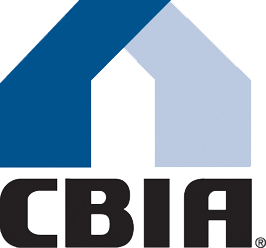Photo by Tierra Mallorca on Unsplash
by Phillip B. Burum, DR Horton,
President, Building Industry Association (BIA) Baldy View Chapter
For most home shoppers, the holiday season is the time when all the planning for a new home goes on the back burner until after the New Year. However, for those who will be looking at 2020 as the year in which they make their American Dream of homeownership a reality, the holiday season offers a great opportunity to circumvent the usual holiday season challenges and bring homebuyers one step closer to their new home.
Start by getting a clear idea of what you will be spending on purchasing your home and let that guide your holiday budget. Determine what you can afford to pay on a monthly basis considering that, in addition to the monthly principal and interest, factor in the money you will pay for escrows for property taxes, hazard insurance and possibly a homeowners' or condominium association assessment.
Mortgage calculators are a great way to figure out what your monthly payments would be based on interest rates and down payment amounts. Calculators can be found on most real estate-focused websites and the National Association of Home Builders (NAHB) offers terrific resources at their www.nahb.org website. Just search Affordable House Price Calculator and try out their new spreadsheet resources. Then search their indispensable NAHB's Home Buyer’s Dictionary for a comprehensive resource containing all the terms you will need to know when home shopping.
In today’s digital world, a great deal of holiday shopping is done online and most of it requires the use of credit cards. Remember, credit card debt can be both a blessing or a curse when it comes to determining your overall credit score because it limits what you qualify for from a lender. Lenders want to see a total debt service ratio that is less than 40 percent of your monthly income. List all of your cards by credit limit and stick to a strict budget on how much to charge up on each to keep yourself at the limit.
Then, make checking your bank and credit card accounts on a regular basis part of your routine. This will help keep an eye out for identity theft and prevent you from overspending.
Schedule or attend a first-time home buying seminar or talk to a credit counselor who does not work for a lender. You can research your options without being influenced by someone who has a financial interest in the home or loan you choose. The U.S. Department of Housing and Urban Development (HUD) offers free housing counseling and seminars and other resources at the www.hud.gov website. Be sure to visit HUD’s Common Questions from First-time Homebuyers, which provides additional resources for first-time buyers, including special financing options and HUD programs.
Dedicate space in your home office for all holiday expenditures, receipts and charitable donations. Your first major project after the New Year will probably be preparing for tax season, so organize now while you have the time.
The holiday season is a terrific time to let your friends and family know that you are shopping for a home and they can contribute gifts of cash to your downpayment fund in lieu of conventional Christmas gifts. Remember, the larger the downpayment, the greater it will reduce the principal one owes on a mortgage which will reduce the interest rate. Once you have received some solid commitments for those gifts, simply ask the donors to sign a ‘gift letter’ indicating that both parties consider the donation a gift. It will save your friends and family the time it takes to go shopping and provide them an opportunity to give a gift that will keep on giving.
The BIA Baldy View Chapter seeks to advance the opportunity to attain the American Dream of home ownership. For additional information on homebuying, home improvements, the benefits of homeownership or home safety or maintenance, visit our www.BIABUILD.com website.
Happy Thanksgiving!
*****

















